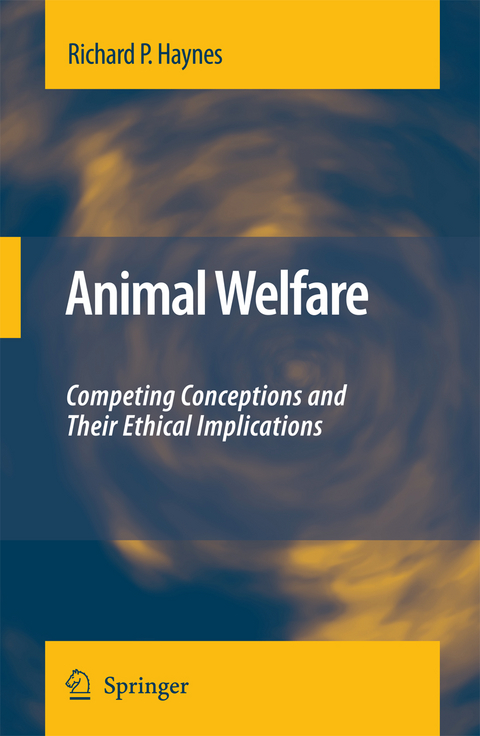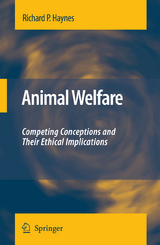Animal Welfare
Springer-Verlag New York Inc.
978-1-4020-8618-2 (ISBN)
The primarily reformist (as opposed to abolitionist) goals of this community make the false assumption that there are conditions under which animals may be raised and slaughtered for food or used as models in scientific research that are ethically acceptable. The tendency of the animal welfare science community is to accept this assumption as their framework of inquiry, and thus to discount certain practices as harmful to the interests of the animals that they affect. For example, animal welfare is conceptualized is such a way that death does not count as harmful to the interests of animal, nor prolonged life a benefit.
The Science of Laboratory Animal Care and Welfare.- The Roots for the Emerging Science of Animal Welfare in Great Britain.- The Historical Roots of the Science of Laboratory Animal Welfare in the US.- Laboratory Animal Welfare Issues in the US Legislative and Regulatory History.- Mandated Institutional Animal Care and Use Committees.- Do Regulators of Animal Welfare Need to Develop a Theory of Psychological Well-Being?.- Conclusion.- The Emergence of the Science of Food Animal Welfare Mandated by the Brambell Commission Report.- Rollin’s Theory of Animal Welfare and Its Ethical Implications.- Duncan and the Inclusion of Subjectivity.- Fraser on Animal Welfare, Science, and Ethics.- Appleby-Sandøe and the Human Welfare Model.- Nordenfelt and Nussbaum on Animal Welfare.- Conclusion to Part II.- Giving Animals What We Owe Them.- to Part III.- The Fair Deal Argument.- A General Theory of Our Moral Obligations to Nonhuman Animals.- Conclusion: Competing Conceptions of Animal Welfare.
From the reviews:"Remarkably well-researched, philosophically reflective, and thought-provoking book … . The value of Haynes’s book lies in its superbly documented insistence that it is morally incumbent upon us to expropriate animal welfare from the narrow and self-serving definition widely disseminated by the animal science welfare community … . Richard Haynes has written a genuinely important book on the ethics of human/animal relations … ." (David Hoch, Journal of Agricultural and Environmental Ethics, Vol. 22, 2009)“This valuable book serves two equally important purposes: it provides and intellectual history of the idea of ‘animal welfare’ and it also presents an ethical analysis of the uses and misuses of the term. … the book not only a complement and correction to the existing literature on human-animal relations but also an original and substantive addition to it.” (Anna Peterson, Agriculture and Human Values, Vol. 27, October, 2010)
| Zusatzinfo | XXV, 162 p. |
|---|---|
| Verlagsort | New York, NY |
| Sprache | englisch |
| Maße | 155 x 235 mm |
| Themenwelt | Geisteswissenschaften ► Philosophie ► Allgemeines / Lexika |
| Geisteswissenschaften ► Philosophie ► Ethik | |
| Naturwissenschaften | |
| Sozialwissenschaften ► Soziologie | |
| ISBN-10 | 1-4020-8618-0 / 1402086180 |
| ISBN-13 | 978-1-4020-8618-2 / 9781402086182 |
| Zustand | Neuware |
| Haben Sie eine Frage zum Produkt? |
aus dem Bereich




